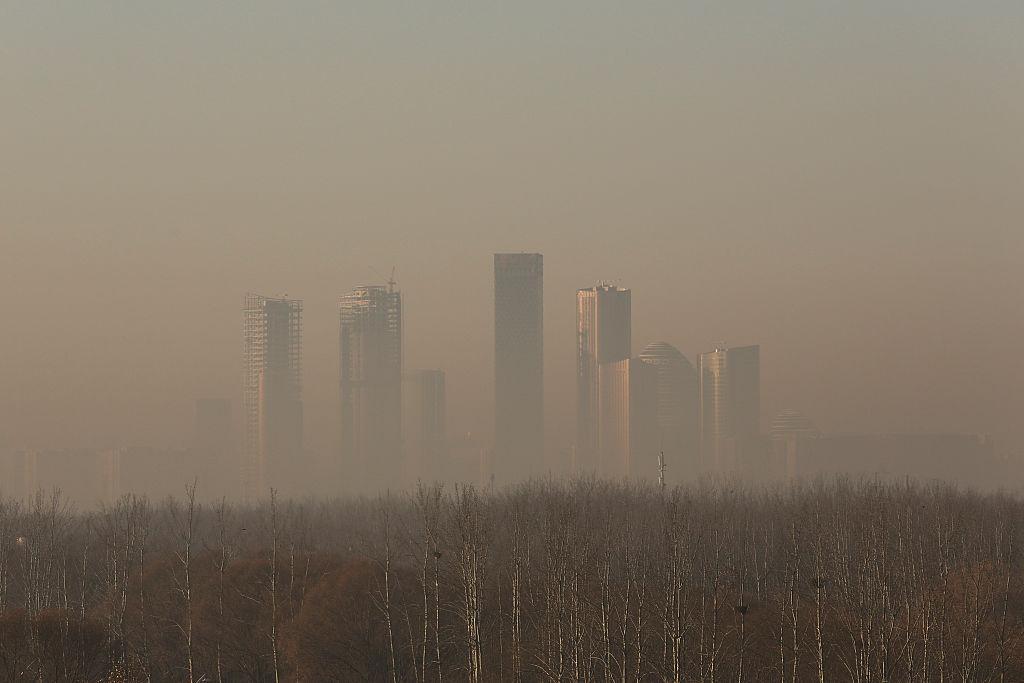What price can you put on clean air? Beijing to spend £2bn fighting pollution in 2017
In 2015, Beijing declared its first ever smog red alert

Your support helps us to tell the story
From reproductive rights to climate change to Big Tech, The Independent is on the ground when the story is developing. Whether it's investigating the financials of Elon Musk's pro-Trump PAC or producing our latest documentary, 'The A Word', which shines a light on the American women fighting for reproductive rights, we know how important it is to parse out the facts from the messaging.
At such a critical moment in US history, we need reporters on the ground. Your donation allows us to keep sending journalists to speak to both sides of the story.
The Independent is trusted by Americans across the entire political spectrum. And unlike many other quality news outlets, we choose not to lock Americans out of our reporting and analysis with paywalls. We believe quality journalism should be available to everyone, paid for by those who can afford it.
Your support makes all the difference.Beijing will invest 18.2 billion yuan (£1.8 billion) in 2017 to fight deadly air pollution, Chinese officials were quoted as saying by the Xinhua news agency.
With nearly 22 million people living in Beijing, the capital has been suffering from suffocating smog for years due to uncontrolled industrialisation.
The government issued a yellow alert on Sunday as smog was expected to hang over the city until Tuesday night. Air quality was then expected to improve with the arrival of cold air.
Beijing has a four-tier alert system for air pollution. Red is the highest followed by orange, yellow and blue. A yellow alert means that the Air Quality Index is exceeding 200 micrograms per cubic metre for a period of 48 hours, meaning that everyone may experience serious health impacts.
In 2015, Beijing declared its first ever red alert after the levels of poisonous particles reached 290, close to the “hazardous” threshold.
On Monday, the index was 194 - considered “unhealthy” - while “good air quality” runs from 0 to 50.
The city aims to control the annual average density of PM 2.5, also known as particle pollution, from 73 micrograms per cubic metre down to around 60, according to Lu Yan, head of the Beijing Municipal Reform and Development Commission.
This year, to improve air quality, Beijing has planned to replace coal with clean energy for 700 villages, remove 300,000 high-polluting old vehicles and close or update 2,570 factories, said acting mayor Cai Qi at the annual session of the Beijing Municipal People’s Congress on Saturday.
The city will “strictly implement emission standards, enhance the environmental law enforcement and establish an environmental protection police force,” he said.
A specialised police unit has been created to help the city’s environmental protection authorities “crack down on violations in environment protection”, Fang Li, head of the Beijing Environment Protection (BEP), told Qianlong.com, a major Chinese news portal in the capital.
“Acts of excessively or secretly discharging pollutants will be severely punished,” Cai added.
Violations include open-air barbecues, garbage incineration and the burning of wood and other biomass.
In 2016, the environment protection squad handled over 13,000 environment-related cases, with fines totaling 150 million yuan (£18 million), including 40 million yuan (£4.8 million) for around 1,500 air pollution cases.
Last year, Beijing had 198 days of good air quality, according to the BEP Bureau.
Join our commenting forum
Join thought-provoking conversations, follow other Independent readers and see their replies
Comments